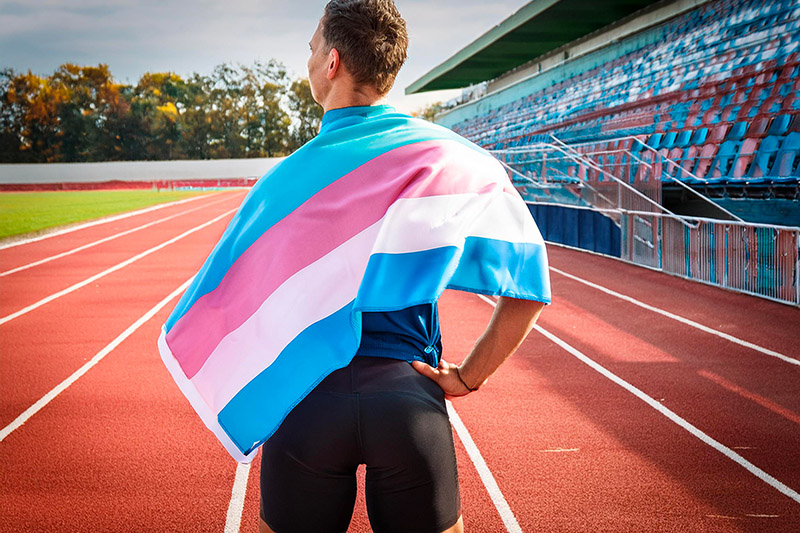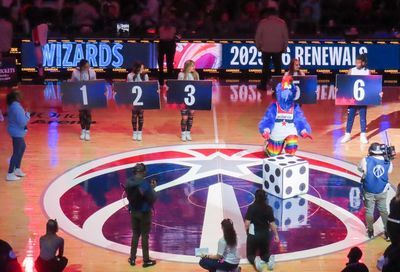10-Year-Old Trans Girl Can Rejoin Girls’ Softball Team, Says Court
Judge Jane Magnus-Stinson issued an injunction preventing Indianapolis Public Schools from attempting to block the girl from the team.

A federal judge has ordered Indianapolis Public Schools to allow a 10-year-old girl — who was told she could no longer participate on the girls’ softball team due to the state’s restrictions on transgender athletes — to rejoin the team.
On Tuesday, U.S. District Judge Jane Magnus-Stinson, of the Southern District of Indiana, issued a preliminary injunction blocking the school district and the superintendent from enforcing the state’s recently adopted law barring transgender females from competing on sports teams designated for girls or women.
The injunction only applies to the 10-year-old plaintiff in the case, and not to any other transgender athletes.
In her order, Magnus-Stinson wrote that she was granting the injunction because the plaintiff, a 10-year-old softball player referred to in court documents as A.M., “has a likelihood of succeeding on the merits of her claim” that the state law violates her civil rights under federal law.
“As the Court has already recognized, A.M. has presented evidence that the harm she would face absent an injunction is substantial,” Magnus-Stinson wrote. “On the other side of the scale, there is no evidence of concrete harm to IPS or the State that would occur if an injunction issues.”
With the injunction in place, A.M. will now be able to participate on the girls’ softball team while her lawsuit challenging the overall law barring transgender athletes from participating works its way through the courts.
Republican Gov. Eric Holcomb vetoed the proposed ban in March, but Republican lawmakers in the legislature overrode his veto, allowing the bill to officially become law on July 1.
Soon after the legislature overrode Holcomb’s veto, A.M. was informed that, under the trans sports ban, she would no longer be able to participate on the girls’ softball team, as she had before. For A.M., who has consistently identified and presented as a girl since four years old, the decision was a major defeat.
Additionally, by banning her from the softball team, the district also risks “outing” A.M. as transgender. Most of her schoolmates are unaware of her gender identity, A.M. has had the gender marker on her birth certificate and her first name legally changed by a court, and she is currently taking puberty blockers to prevent the onset of secondary sex characteristics that typically accompany puberty.
After being informed she would no longer be allowed to participate on the softball team, A.M., with the help of the American Civil Liberties Union of Indiana, sued the district and superintendent to stop them from trying to enforce the law. In her lawsuit, filed in May, A.M.’s attorneys argue that the trans sports ban violates her rights under Title IX, the federal law that prohibits sex-based discrimination in educational settings.
A.M.’s legal team has also based part of its argument on a U.S. Supreme Court decision from 2020 in a case involving employment discrimination, in which the high court found that discrimination against LGBTQ individuals constitutes a form of sex discrimination.
A spokesperson for Indianapolis Public Schools told the Indianapolis Star that it will comply with the court’s order.
“We will continue to support our students, including our transgender students, with the same care and attention we’ve demonstrated prior to the passage of [the law] and the filing of the current lawsuit,” the spokesperson said in a statement.
Proponents of the transgender ban say it’s necessary to prevent cisgender females from losing out on athletic opportunities when they must compete against transgender girls with a biological advantage over them. They have argued preventing trans athletes from competing in female-designated sports will ensure fairness in athletics.
But LGBTQ advocates have criticized the law, saying it will only further marginalize transgender children, potentially exacerbating their feelings of loneliness, depression, and potentially even suicidal ideation.
Ken Falk, the legal director of the ACLU of Indiana, said in a statement that the organization was “pleased” by Judge Magnus-Stinson’s decision to issue the injunction.
“When misinformation about biology and gender is used to bar transgender girls from school sports it amounts to the same form of sex discrimination that has long been prohibited under Title IX, a law that protects all students — including trans people — on the basis of sex,” Falk said.
Support Metro Weekly’s Journalism
These are challenging times for news organizations. And yet it’s crucial we stay active and provide vital resources and information to both our local readers and the world. So won’t you please take a moment and consider supporting Metro Weekly with a membership? For as little as $5 a month, you can help ensure Metro Weekly magazine and MetroWeekly.com remain free, viable resources as we provide the best, most diverse, culturally-resonant LGBTQ coverage in both the D.C. region and around the world. Memberships come with exclusive perks and discounts, your own personal digital delivery of each week’s magazine (and an archive), access to our Member's Lounge when it launches this fall, and exclusive members-only items like Metro Weekly Membership Mugs and Tote Bags! Check out all our membership levels here and please join us today!





















You must be logged in to post a comment.